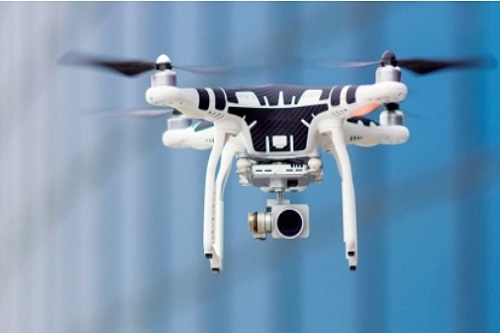Emerging technology trends accelerated by the pandemic

Emerging technology trends accelerated by the pandemic. Where would we be without technology during these testing times?
It’s been said many times throughout the coronavirus pandemic, but where would we be without technology during these testing times?
It’s helping keep us entertained, productive, healthy, educated and informed, amongst other things, and therefore ensuring that, as a society, we’re more resilient in the face of the pandemic and other threats.
For businesses, technology is enabling them to minimise interruption and continue as close to ‘business as normal’ as possible. The pandemic has prompted companies to expedite digital transformation projects, in a bid to get employees online and continue to serve customers and clients.
According to a survey carried out by Econsultancy and Marketing Week, a fifth of large enterprises (with annual revenue of more than £50 million) globally have invested in digital transformation.
Of the more than 300 respondents from global enterprises who replied to the survey, one in five (19%) say that they have increased spending, or invested new spending, in strategic initiatives such as digital transformation for the first half of 2020. Around a quarter (23%) indicated that their spending on technology or infrastructure had increased.
So, on what technologies are firms spending their money? These four tech trends, which have emerged throughout the pandemic, might offer some clues:
Remote working
The message from governments since the outbreak started has been “work from home where possible”. Some businesses were already geared up for remote working, whereas others have had to source online collaboration tools to enable their staff to do their jobs effectively.
The remote working trend isn’t a new one, but many firms who were opposed to it pre-pandemic are changing their opinions having found a way to make it work.
Employees are getting used to the new way of working, too. In the COVID-19 Remote Working Survey, produced by Eskenzi PR in May 2020, 91% of the 1,000 full-time employees said they would prefer to have the option to work remotely once the pandemic is over.
Supply chain 4.0
Supply chain management has also been affected by the pandemic, with distancing and quarantine orders forcing some suppliers to cease operations temporarily. Those firms who have leaned heavily on paper-based records have found themselves most vulnerable, with a lack of a digital system causing issues with visibility, diversity and flexibility.
Companies are building more resilience into the supply chain by using Big Data, cloud computing, blockchain and the Internet of Things in order to enhance data accuracy and sharing.
Digital and contactless payments
With the potential for the virus to be transmitted through touch, there’s a need to become contactless, where possible – which means that cash is having to remain in wallets.
Contactless digital payments, either in the form of cards or e-wallets, are the recommended payment method to avoid the spread of COVID-19 and keep business flowing.
Will the pandemic accelerate the shift to a cashless society? As the World Bank points out, however, there are more than 1.7 billion unbanked people, who may not have easy access to digital payments.
Robotics and drones
Prior to the COVID-19 outbreak, we worried about the prospect of robots taking our jobs. But considering robots cannot contract COVID-19, could they be more of a blessing in disguise?
Robots could mean more, not fewer, opportunities. The World Economic Forum released a report at the start of the year which indicated that, between 2020 and 2022, an estimated 6.1 million opportunities globally would be created from emerging professions resulting from automation.
Drone delivery of medical supplies has already taken place on the Isle of Wight. As The Telegraph recently reported, the CAA is planning to create ‘air corridors’ for additional deliveries, both during the pandemic and beyond.
Robotics is not so much a new trend but one that will undoubtedly emerge from the pandemic with a greater sense of importance.
The pandemic has accelerated the adoption of new technologies in a range of sectors from marketing to manufacturing. And while this adoption certainly holds many rewards, it will also create new risks.
Authored by MS Amlin
About MS Amlin
MS Amlin is a leading global specialty commercial insurer and reinsurer with operations in the Lloyd’s, UK, Continental European and Bermudian markets.
Comprising Mitsui Sumitomo’s London and Bermuda-based operations and the historic Amlin businesses, MS Amlin specialises in providing insurance cover for a wide range of risks to commercial enterprises and reinsurance protection to other insurers around the world.
It is wholly owned and fully supported by the financial strength and scale of MS&AD of Japan, the eighth largest non-life insurer in the world. To learn more, visit www.msamlin.com.

